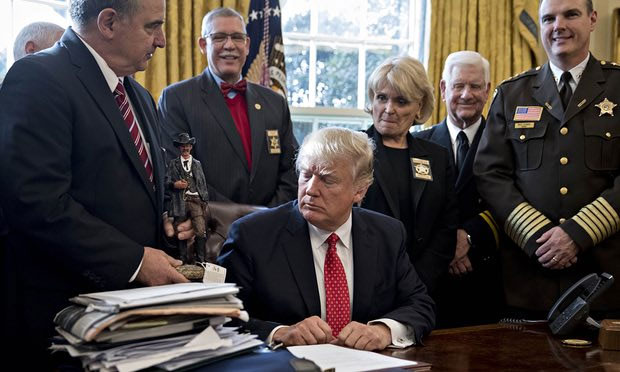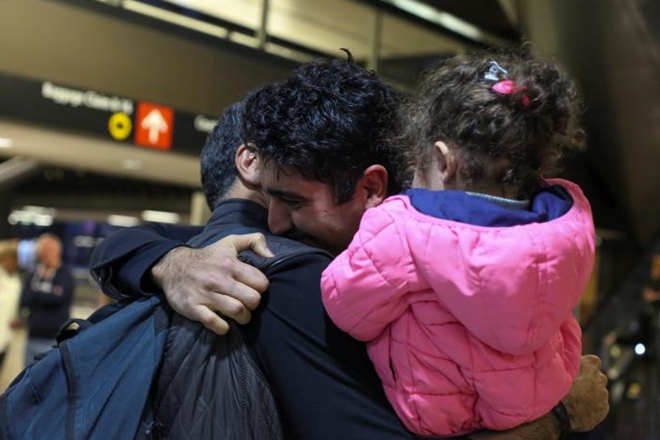Appeals court presses Trump administration on travel ban
President Donald Trump's order temporarily banning U.S. entry to people from seven Muslim-majority countries came under intense scrutiny on Tuesday from a federal appeals court that questioned whether the ban unfairly targeted people over their religion.
- World leaders react to Donald Trump's inauguration
- The key moments of Donald Trump's inauguration day
During a more than hour-long oral argument, a three-judge panel of the 9th U.S. Circuit Court of Appeals pressed a government lawyer whether the Trump administration's national security argument was backed by evidence that people from the seven countries posed a danger.
Judge Richard Clifton, a George W. Bush appointee, posed equally tough questions for an attorney representing Minnesota and Washington states, which are challenging the ban. Clifton asked if a Seattle judge's suspension of Trump's policy was "overbroad."
The 9th Circuit said at the end of the session it would issue a ruling as soon as possible. Earlier on Tuesday, the court said it would likely rule this week but would not issue a same-day ruling. The matter will ultimately likely go to the U.S. Supreme Court.
 |
| President Trump |
Trump's Jan. 27 order barred travelers from Iran, Iraq, Libya, Somalia, Sudan, Syria and Yemen from entering for 90 days and all refugees for 120 days, except refugees from Syria, whom he would ban indefinitely.
Trump, who took office on Jan. 20, has defended the measure, the most divisive act of his young presidency, as necessary for national security.
The order sparked protests and chaos at U.S. and overseas airports. Opponents also assailed it as discriminatory against Muslims in violation of the U.S. Constitution and applicable laws.
A federal judge in Seattle suspended the order last Friday and many travelers who had been waylaid by the ban quickly moved to travel to the United States while it was in limbo.
August Flentje, representing the Trump administration as special counsel for the U.S. Justice Department, told the appellate panel that "Congress has expressly authorized the president to suspend entry of categories of aliens" for national security reasons.
"That’s what the president did here," Flentje said at the start of the oral argument conducted by telephone and live-streamed on the internet.
 |
| Iranian citizen and U.S green card holder Cyrus Khosravi (C) greets his brother, Hamidreza Khosravi (L), and niece, Dena Khosravi (R), 2, after they were detained for additional screening following their arrival to Seattle-Tacoma International Airport to visit Cyrus, during a pause in U.S. President Donald Trump's travel ban in SeaTac, Washington, U.S. February 6, 2017. REUTERS/David Ryder |
CAMPAIGN PROMISE
Trump frequently promised during his 2016 election campaign to curb illegal immigration, especially from Mexico, and to crack down on Islamist violence.
National security veterans, major U.S. technology companies and law enforcement officials from more than a dozen states have backed a legal effort against the ban.
"I actually can't believe that we're having to fight to protect the security, in a court system, to protect the security of our nation," Trump said at an event with sheriffs at the White House on Tuesday.
The legal fight over Trump's ban ultimately centers on how much power a president has to decide who cannot enter the United States and whether the order violates a provision of the U.S. Constitution that prohibits laws favoring one religion over another, along with relevant discrimination laws.
The appeals court is only looking, however, at whether the Seattle court had the grounds to halt Trump's order while the case challenging the underlying order proceeds.
"To be clear, all that's at issue tonight in the hearing is an interim decision on whether the president's order is enforced or not, until the case is heard on the actual merits of the order," White House spokesman Sean Spicer said.

